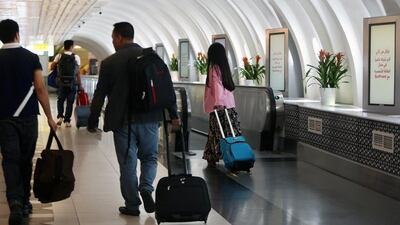Airlines need to transform how they sell to their customers. If they are to take advantage of the changes in the travel distribution industry, while preventing digital technologies from turning their airplane seats into commodities, they will need to overhaul their ticket-distribution strategy. In the future, airlines will need to consider all the channels available in each market for connecting with their customers. They will have to take account of the data they can now collect through social media, loyalty programmes and the booking process.
A new approach is needed because changes in distribution channels mean that leisure and business travellers increasingly search and book online. They use phones, tablets, and computers – multiple devices – when looking up and buying flights. Travellers share their experiences on social media, which others use as input for booking decisions. Customers also use loyalty programmes to tell airlines their preferences, such as for seats and meals. Business travellers want the same ease when making reservations, while their employers want to restrain travel costs.
These changes present fast-growing GCC airlines with an opportunity, but only if they adopt an overall strategy that is enabled by technology. That will transform their travel distribution model and build their internal capabilities to adapt to changing consumer behaviour. This strategy involves three main initiatives: transforming travel distribution business models; partnering with channel, content and technology players; and enhancing internal, particularly digital, capabilities.
First, transforming the travel distribution business model means identifying key challenges such as load factors, yield and cost of sales – by cabin, country and distribution channel. Once they know where the issues are, airlines should take measures that are specific to each challenge and that take advantage of their direct and indirect channels. Such distribution model transformation can improve sales performance.
The challenge in the Middle East is the rapid adoption of mobile. Online channels are now the fastest growing sources for travel planning. By mid-2015, 15 per cent of travellers accessed booking sites using smartphones exclusively.
Airlines should therefore exploit the data from their contact with customers, along with “big data”. They should deliver individualised services that work across platforms and devices for leisure and business travellers and that attract these travellers to airlines’ own direct channels. They need digital offerings on all direct channels that easily connect information and sales to travel information and the customer’s preferred social media. For example, KLM allows customers to check in, receive flight updates and change travel itineraries from within Facebook Messenger.
Similarly, airlines can use loyalty programmes to cost effectively acquire detailed knowledge of customer preferences and requirements and to send appropriate offers. These programmes also work in the corporate segment, especially for smaller companies, and can encourage customer loyalty. For example, Etihad’s Business Connect programme allows companies to accumulate points to use for travel, upgrades, or even redeem for cash.
Second, airlines should partner with distribution players such as traditional travel agencies, online travel agencies and travel management companies. They should do this in a way that lets airlines differentiate themselves, better manage pricing, so it enhances their connections to customers. Distribution partners can benefit from the strength of airline brands, point of sale strength in target markets and access to the airlines’ customer base.
Airlines can form equity partnerships in those markets where it is important to have more control over distribution partners. For example, Emirates Group, via dnata, has a number of equity investments in travel agencies in the UK, an important market, and an equity partnership with one of the world’s leading travel management companies. Airlines can also form partnerships with technology providers to enhance their online merchandising capabilities.
Third, airlines need to build their internal distribution capabilities so that they are centred on the customer. This means changing their operating model, processes, skills, technology, organisational set-up and culture.
The organisational aspect is critical. Instead of having marketing, sales, distribution, pricing, data analytics, strategy, IT and loyalty programmes operate as functional silos, a capable airline makes these functions collaborate to know the needs of each customer. All employees will similarly be focused on serving the customer and coming up with actionable customer insights. A capable airline will know its customers intimately and can turn this knowledge into personalised and targeted products and services.
Attractive loyalty programmes are part of building that customer connection and should influence customers’ bookings and travel behaviour in favour of the airline.
Technology and digital are critical to these internal capabilities and getting closer to the customer. Airlines need technology that allows them to use direct channels without serious obstacles, which may mean moving away from old or inadequate technology platforms and applications.
By getting closer to their customers, GCC airlines will be able to extract more value from their products and services, while avoiding the commoditisation of airline seats that affects so much of the sector.
Alessandro Borgogna is partner; Aditya Agarwalla, the manager, with Strategy& (formerly Booz & Company); and Ivan Jakovljevic is head of travel, finance, and government for Mena at Google.
business@thenational.ae
Follow The National's Business section on Twitter

